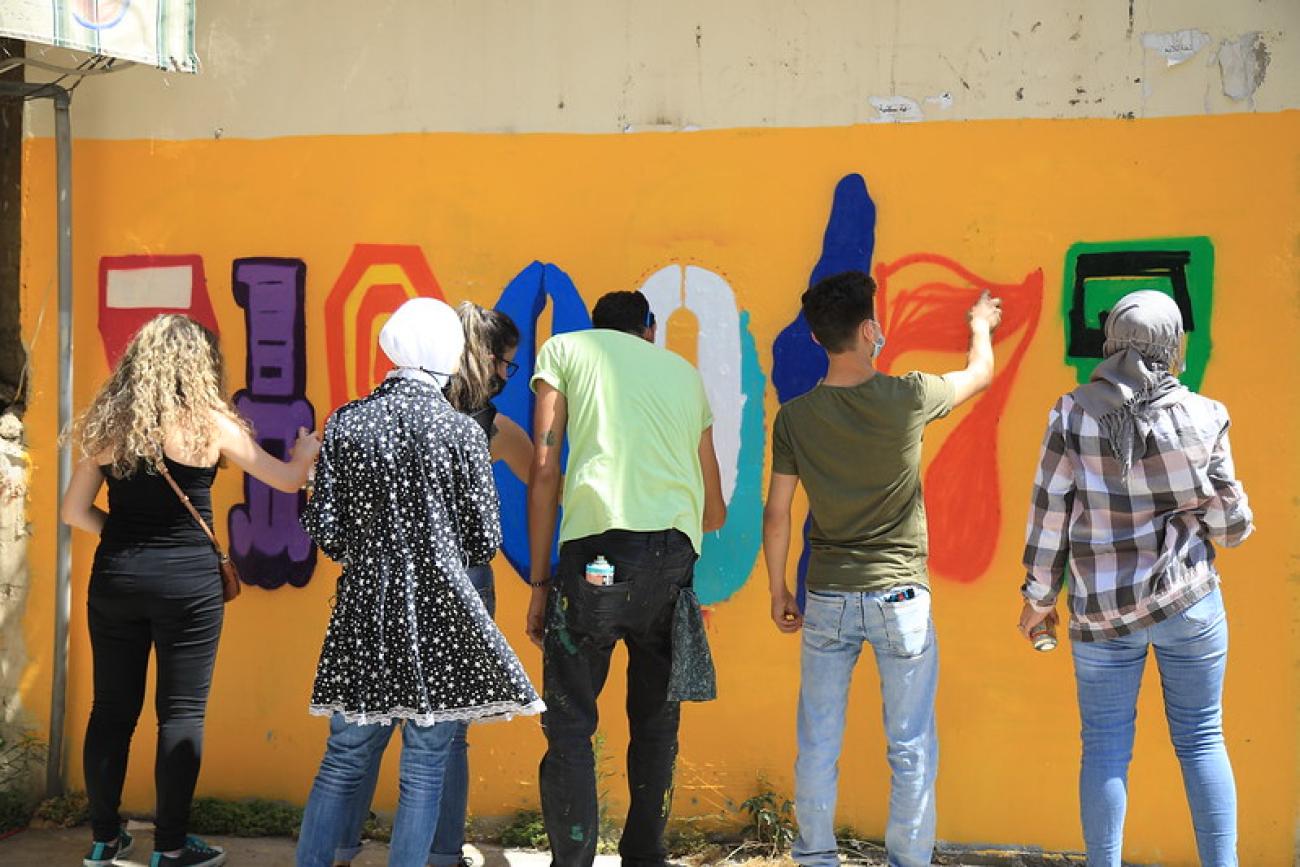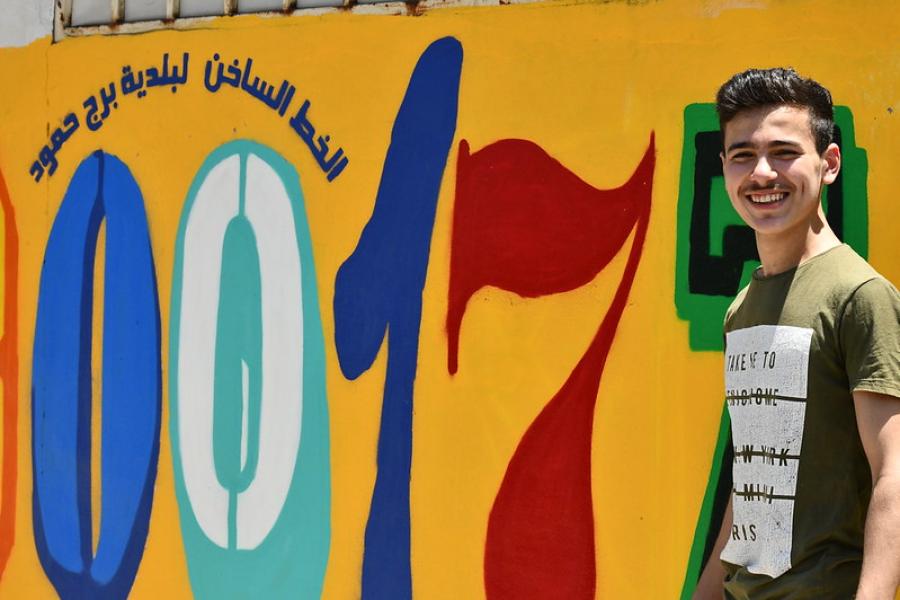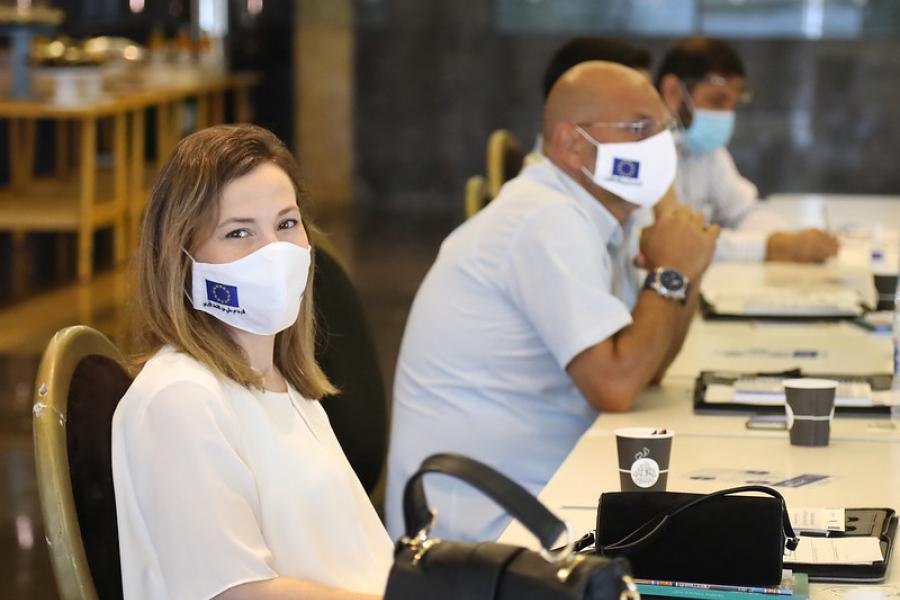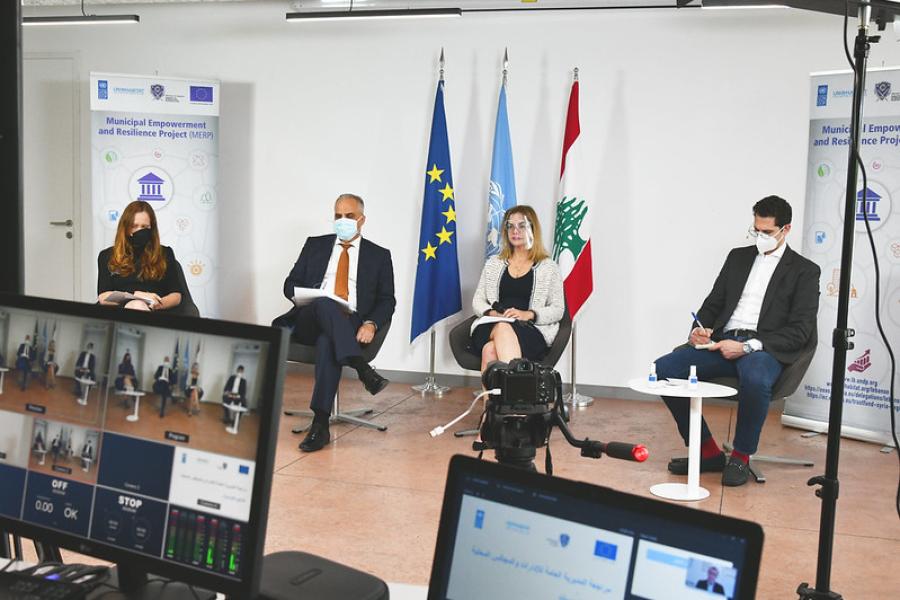Supporting Lebanese local authorities in developing projects that respond to local needs

UN-Habitat with UNDP implement a new approach delivered by MERP to strengthen local authorities’ capacity to identify basic service & local economic projects
Local governments in Lebanon are facing compounded crises, including the Syrian displacement crisis, Lebanon’s economic and financial crises, and the global and local impact of the COVID-19 pandemic, which impose unprecedented challenges on their capacity to deliver basic services to their communities.
In response to these crises, UN-Habitat jointly with UNDP are implementing a new approach delivered by the Municipal Empowerment and Resilience project (MERP) aiming to strengthen local authorities’ capacity to identify basic service and local economic development (BS\LED) projects that are responsive to the needs of local communities, including refugee populations. The project is funded by the European Union through the EU Regional Trust Fund in Response to the Syrian Crisis, ‘Madad Fund’.

First, MERP launched a call for concept notes for projects up to USD 330,000, which included a detailed selection criterion emphasizing the need to stress on projects that are inclusive, sustainable and responsive to the communities' needs. In total 33 concept notes for BS\LED projects were submitted. To ensure that also municipalities with limited capacity can benefit from this opportunity, short-listed municipalities received training and coaching to develop their concept notes into full proposals.
‘The practical approach adopted in the coaching sessions helped me to identify the nature of activities, as well as the competencies and timeframe, which are considered an important part of the proposal development process, in addition to the estimated cost of each detail', Khalil El Husseini, a municipal staff said upon completion of the training session on proposal writing.
The submitted projects cover key municipal services such as firefighting services, sports and youth centers, healthcare centers, public gardens, energy efficiency projects, sewage systems, and drinking water services. Considering Lebanon's current situation, several municipalities submitted concept notes for projects with a strong local economic development focus, including initiatives supporting the local agricultural sector such as agricultural markets, a natural soap factory and cow/agri-food production farms. Other municipalities proposed projects with an entrepreneurship focus, such as business incubators and training centers.

MERP shortlisted 18 municipalities and provided further support in developing full-fledged proposals through training and hands-on coaching. This resulted in the development of solid projects. It also strengthened much-needed municipal capacity to identify projects and develop project ideas that respond to local needs. Furthermore, the training and coaching process will be also documented and made available to external municipalities so that MERPs impact extends beyond the municipalities that entered the call.
Additionally, MERP developed a functional assessment for two of the 14 existing Regional Technical Offices (RTOs) that aim to strengthen local governance, enhance service delivery, and mainstream planned interventions, in Lebanon. The purpose of the assessment is to propose recommendations to strengthen RTOs and to support the replication and sustainability of the model on the longer term. This will further enable RTOs to provide technical and social assistance to municipalities and union of municipalities (UoMs) in the design and implementation of municipal projects.
A municipal fair was organized in August for municipalities and UoMs to present their final proposals to key stakeholders, including other national, regional and local actors and development partners. MERP supported municipalities in marketing their ideas during the fair, thereby paving the way for potential implementation through other local or international funding opportunities.

In parallel, selected municipalities and UoMs will be part of a municipal finance assessment. Based on the assessment, MERP will implement select municipal finance solutions to strengthen revenue collection/budget efficiency. This in turn will support the longer-term sustainability of implemented projects.
As the economic and financial crises progress, and municipal resources are rapidly dwindling, municipalities are increasingly looking towards external donors to be able to deliver much needed services to their communities. Through this activity, MERP hopes to not only address the immediate needs of local communities in terms of basic services and local economic development projects, but also to invest in municipal and UoMs capacity to successfully attract external resources in the future.
Also, as a next step, MERP will support the development and implementation of eight municipal projects and two unions projects by 2022.
This story was written by Aline Kiwan, Media and Communication Officer at UN-Habitat, working on the Municipal Empowerment and Resilience Project.








